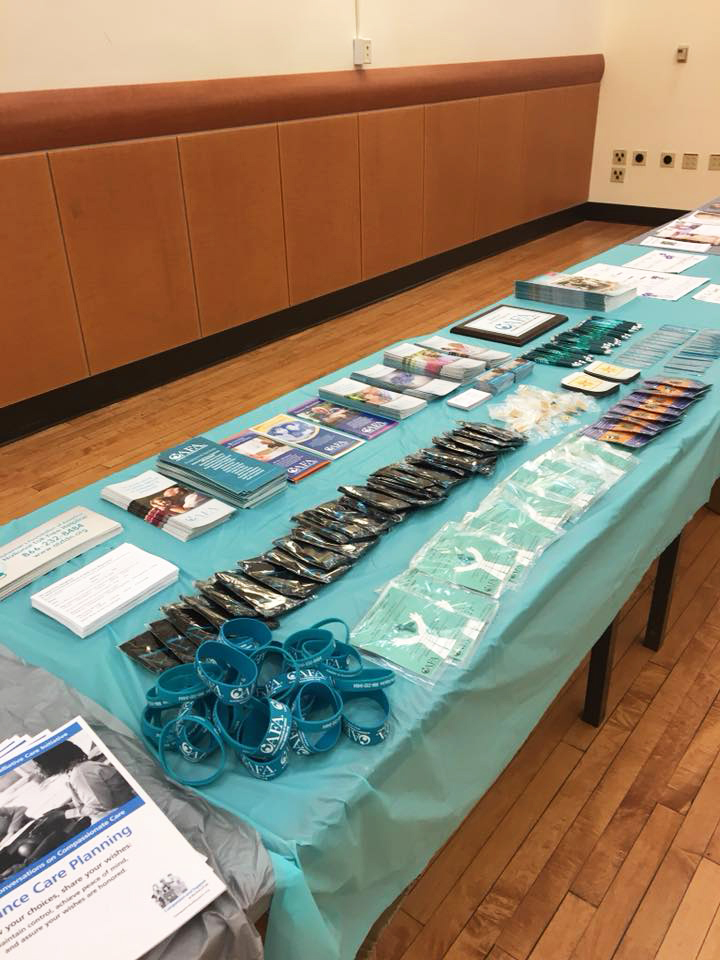
The Binghamton University chapter of the Alzheimer’s Foundation of America On Campus hosted the second annual Raise Your Voice for Care on Sunday as part of the national nonprofit’s college tour.
The event, held in the Mandela Room in the University Union, aimed to raise awareness for the effects of Alzheimer’s disease and provide a space for students to learn and share their experiences with the disease.
The Alzheimer’s Foundation of America has over 2,600 chapters all over the country and on campuses. The BU chapter was founded two years ago by current president Katie Zwerger, a senior majoring in sociology. Zwerger said she felt a need for an Alzheimer’s group on campus to raise awareness and provide support.
“Our club is committed to creating a support system on campus for students who have been affected by Alzheimer’s disease,” Zwerger said. “We are also here for the community.”
A panel and Q&A featured a number of elderly care professionals who spoke about their experiences working with patients with Alzheimer’s. The panel included representatives from Broome County Yesteryears, Brookdale Senior Living and The Hearth at Castle Gardens Retirement Community. Rene Conklin, clinic coordinator of the Elder Services Center in the Decker School of Nursing, was a panelist at the event and spoke about the widespread nature of Alzheimer’s.
“Dementia is a pervasive disease — it can affect anybody,” Conklin said. “It doesn’t matter if you have money, if you’re poor, what color you are, it doesn’t matter. Alzheimer’s affects everybody.”
After the panel, Zwerger presented on music therapy. According to Zwerger, music can help recall old memories and influence positive changes in mood.
Christina Muscatello, a Binghamton resident and co-founder and director of The Memory Maker Project, which provides art therapy for Binghamton residents, also spoke on art therapy and its benefits for people with Alzheimer’s. Muscatello emphasized the importance of local organizations that provide support and help individuals with Alzheimer’s cope with the emotional effects of the condition.
“We are really trying to keep people as engaged in the community as possible and it helps people to stay at home,” Muscatello said. “There is no other program that is specifically like this within like 200 miles of here, so we felt like there’s such a huge aging population here and it’s only going to get bigger.”
Edward Kerner, a senior majoring in history, said he attended the event because he had a personal connection to the organization.
“My grandmother suffered from Alzheimer’s for about five years before she passed, so I had firsthand experience with people suffering from the disease,” Kerner said. “I think any way that we can make people’s lives better is just in general a good thing.”


